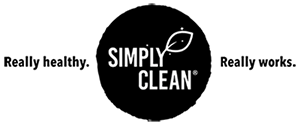What do you know about eucalyptus trees?
Well, koalas love to munch on their leaves and...distilling those same leaves produces eucalyptus oil that is useful for treating a myriad of health issues. You’ll also know that eucalyptus trees are rampant in Australia.
But some people feel the eucalyptus is – well, a little ordinary. Think eucalyptus and Australians picture a sea of greyish green/blue leaves. The trees are everywhere in Australia, and so are commonplace.
We’re here to sing the praises of the mighty eucalyptus with some facts you may not know about this all-Australian icon.
Blue mallee - our eucalyptus of choice
SimplyClean eucalyptus products contain oil that comes from Australia’s oldest commercial eucalyptus plantation, established in 1949 and still family-owned.
Blue Mallee Eucalyptus has a very high level of cineole – the ‘secret’ ingredient
The leaves from the blue mallee they grow are double-distilled, producing the pure eucalyptus polybractea essential oil that features in SimplyClean. We always source our iconic essential oils locally, and our Eucalyptus Essential Oil is no exception – it’s the highest quality and 100% Australian.
Blue mallee is the most common tree to be planted for carbon offset programs
Because the blue-leaved mallee is native to Australia, it grows well in drought conditions and can quickly store a great deal of carbon.
More Mighty Eucalyptus Facts
Eucalyptus is poisonous for most animals
Other than koalas, ring-tail possums and some insects, eucalyptus is highly toxic. It contains high concentrations of ‘cineole’. that turns eucalyptus into a ‘secret weapon’, giving it anti-bacterial and anti-fungal properties, making it great as an antiseptic.
However, the other side of the coin is that so few creatures can withstand the high levels of this colourless liquid.
There are over 700 species of eucalyptus
Most eucalyptus species are native to Australia, while each state or territory has their very own representative species.
Approximately ¾ of the Australian bush is eucalyptus. Because bushfires are common in Australia, many eucalyptus species are highly adaptive to fire and re-sprout or have seeds that are able to survive fire.
They actually have very colourful (and useful) flowers
Eucalyptus trees have distinctive flowers and ‘fruit’ (gumnuts). But the flowers have no petals – instead, they have numerous fluffy stamens that can range from white to red in colour.
These flowers are a significant food source for nectar birds, pollinators and insects.
The trees control pollution
Eucalyptus trees help to control particle pollution! The air we breathe contains particles of dust, soot, smoke or dirt.
Look very closely at eucalyptus leaves and you’ll see they are covered in particles that have settled and are then trapped on the surface. When it rains, they’re washed to the ground – staying out of our lungs.
Eucalyptus trees grow super-fast
Many varieties of eucalyptus reach early maturity within 10 years, which is one of the reasons they're an environment-friendly choice.
Eucalyptus wood makes the best didgeridoos!
Didgeridoos experts claim the best didgeridoos are made from eucalyptus wood. Traditionally, they’re made from the trunk or major branches that have been hollowed out by termites. The wood is stripped down, cleaned out and polished.
Eucalyptus is the preferred timber to make a didgeridoo because it is very hard wood, giving good resonance and timbre, which enhances the sound of this traditional instrument.

